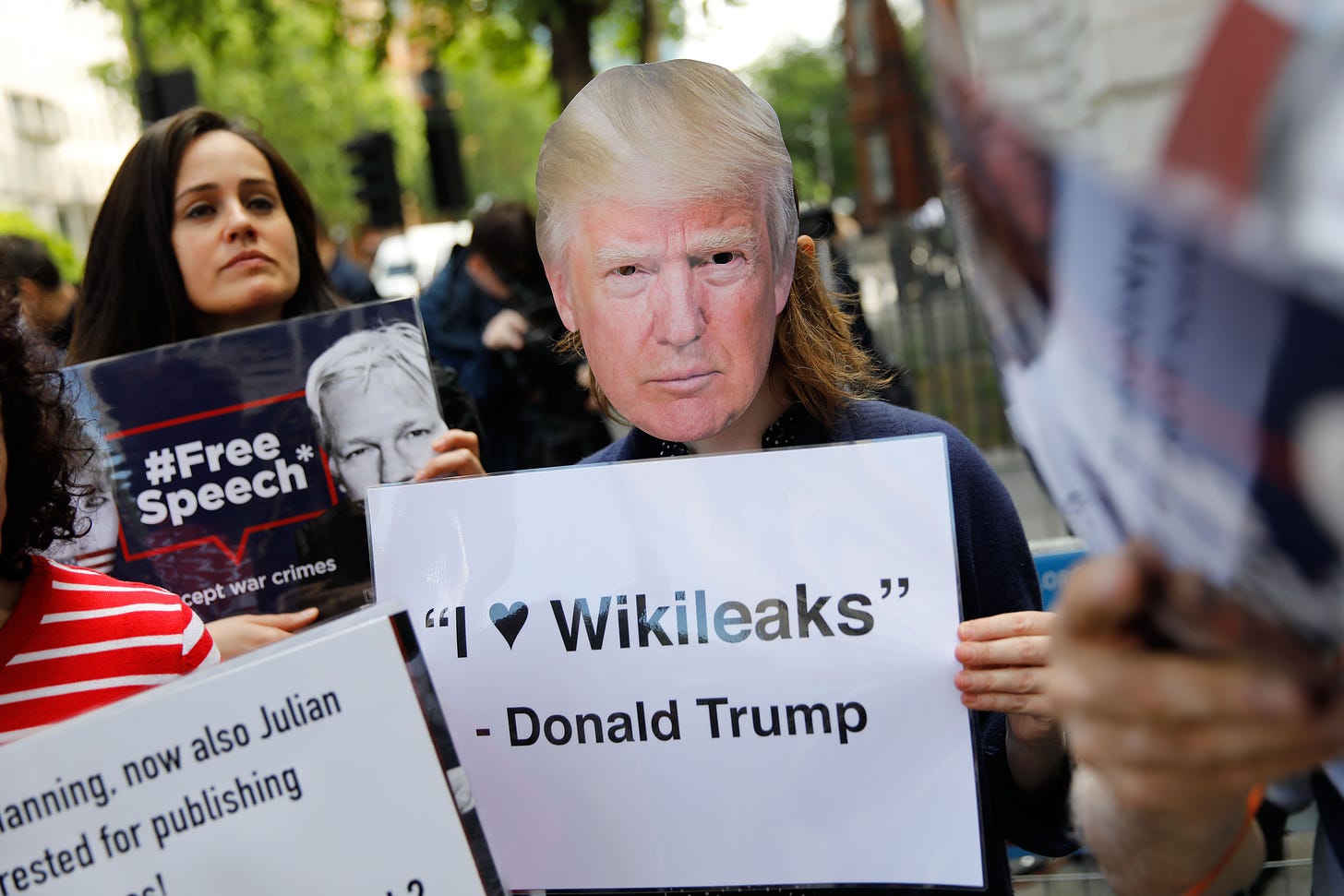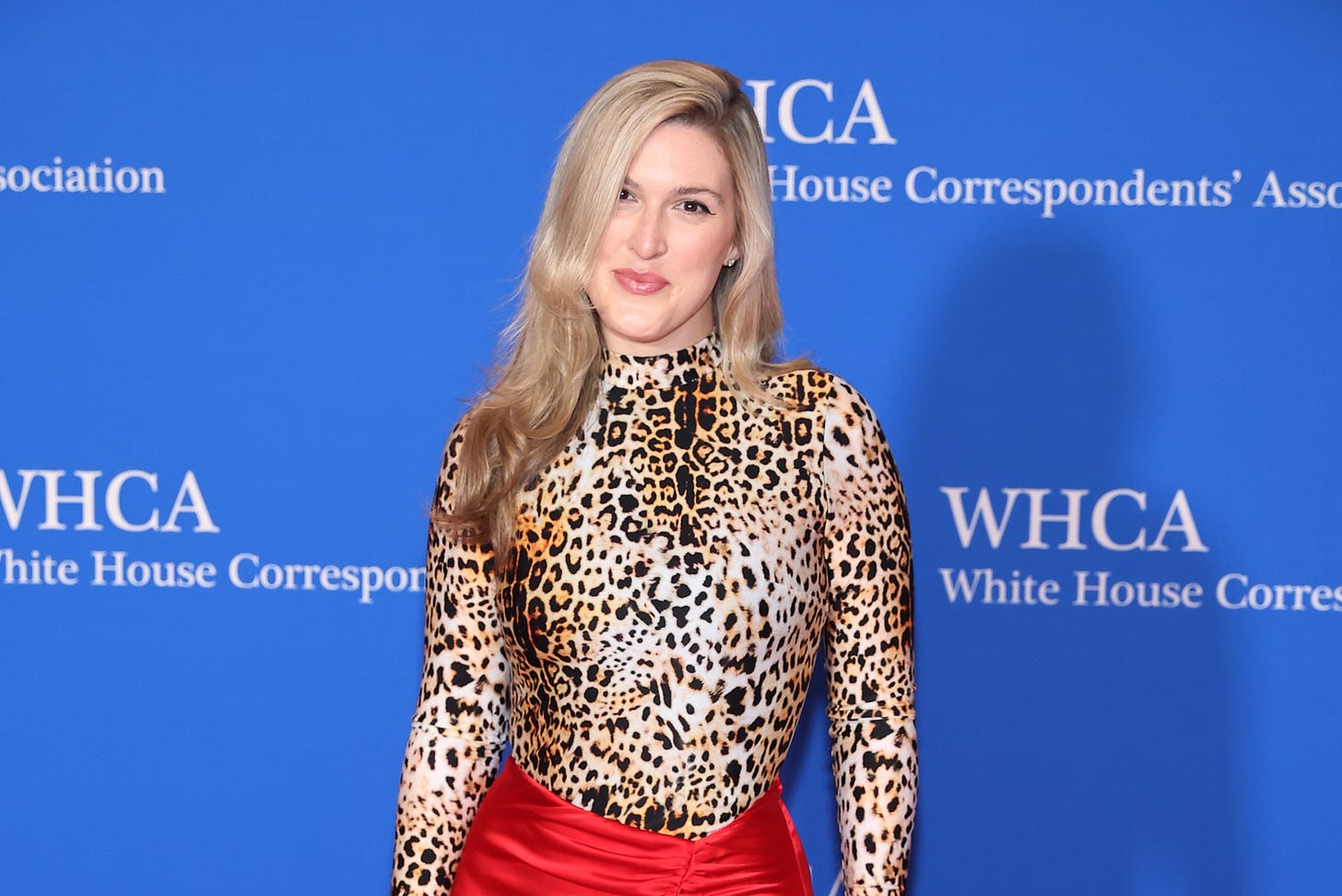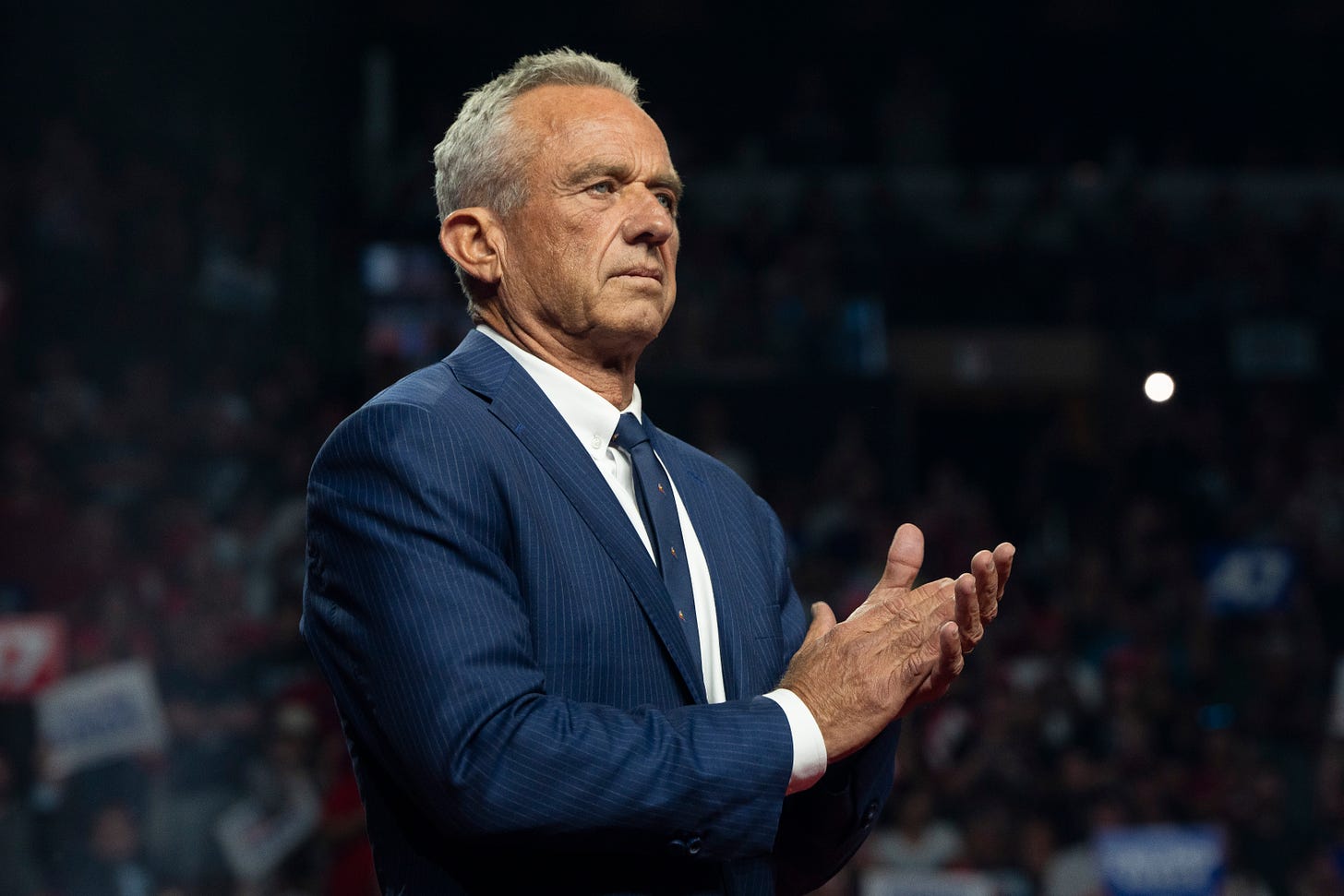Media double standard? Or a 2016 lesson learned?
Also, what I told my ethics class about the media scandal du jour
“I love WikiLeaks!” Donald Trump crowed during the 2016 campaign as emails from Hillary Clinton’s campaign made embarrassing headlines. The news media indulged in the hacked information, most of which was trivial, though some of it — and certainly the constant drip — was damaging. To varying degrees, they told their readers that the hacked information apparently came courtesy of Russia, which was trying to sway the election for Trump.
Now, eight years later, the tables have turned. Big news organizations, including Politico, the New York Times and the Washington Post, have been the recipients of a new leak — this one into Trump’s campaign, with the source apparently an Iranian hacking organization. Reportedly, the hackers tried unsuccessfully to get at the Democrats as well.

So far, the media has turned its nose up at the information, deciding not to publish and thus raising questions about why.
What’s so different this time?
Theories abound: the information simply isn’t newsworthy; the press is worried about looking like they’re against Trump; or self-scrutiny has made editors realize that they once were used by a campaign and a foreign government with an ax to grind and don’t want to let that happen again.
“This episode probably reflects that news organizations aren’t going to snap at any hack that comes in and is marked as ‘exclusive’ or ‘inside dope’ and publish it for the sake of publishing,” Washington Post executive editor Matt Murray told Post reporter Elahe Izadi.
Rather, Murray went on, “all of the news organizations in this case took a deep breath and paused, and thought about who was likely to be leaking the documents, what the motives of the hacker might have been, and whether this was truly newsworthy or not.”
That sounds reasonable. But I found myself doing this thought experiment: What if the hack was not into the Trump campaign but only into the Harris (or previously, the Biden) campaign?
Would the same editorial restraint have applied, especially if right-wing media and politicians had begun shouting from the rafters about how the press, by not publishing, is protecting the Democrats and is in the tank for Harris? I’m not so sure the same conclusion would have been reached — not because the honchos of Big Journalism want Trump to win, but because they’re so defensive about being depicted as liberal.
By most accounts, the material itself isn’t terribly newsworthy and that may make the decision simpler. The most noteworthy element seems to be a 271-page campaign document setting forth JD Vance’s downside as a running mate, compiled before Trump made his choice. But it may simply be information that was readily available — essentially a bunch of news clips or things he had said in public interviews or on podcasts.
A group of well-known journalists got together last week to kick this topic around at the behest of Steve Adler, the former top editor of Reuters who now runs an ethics initiative at NYU. Adler moderated a panel including Ben Smith of Semafor who — when he was the editor of BuzzFeed News — famously published the so-called Steele dossier. That dossier was full of unverified and in some cases salacious information about Trump, much of which has turned out to be untrue. The other panelists were Sewell Chan, the new editor of Columbia Journalism Review, and Kathleen Carroll, the former executive editor of the Associated Press.
These media bigwigs agreed, in general, that the standard for publication of hacked information has to be true newsworthiness. In other words, does the public need to know what’s in documents that come from such a tainted source? Smith, though, said he has a strong (and, I would add, well-proven) tendency to go ahead and publish, reasoning that the press shouldn’t be in the business of keeping secrets.
Maybe the media really has learned something from mistakes made that helped get Trump elected. But I’m aware of precious little soul-searching about 2016 campaign coverage — particularly the way Hillary Clinton’s use of a private email server was vastly and damagingly overplayed. There have been even fewer admissions of wrong-doing or plans for reform, at least that I’m aware of.
So, while I’d like to think that what we’re seeing in the media’s silence about the Iran hacks is mostly “lesson learned,” I’m not convinced. That’s probably one element, with the lack of urgent newsworthiness a bigger part, combined with a desire — however unacknowledged, even to themselves — to avoid inflaming right-wing criticism.
Readers, I’d like to know your thoughts on this — let me know in the comments or on social media. And thank you to all subscribers, including recent ones. As mentioned in my last post, I’ll donate the proceeds of new subscriptions through the election to the Student Press Law Center, which provides legal help to high school and college journalists.
And finally, just a word on the media scandal of late last week. New York magazine suspended their prominent politics writer, Olivia Nuzzi, after finding out that she was texting nude photos of herself to then-presidential candidate Robert F. Kennedy Jr. She had written about Kennedy and his rivals, including a major piece on President Biden’s age and mental acuity. The morning after this startling news broke, I taught my Ethics Essentials class at Columbia Journalism School. We talked about the glaring conflict of interest that Nuzzi created for herself and the magazine, whose editors have now arranged for an outside review of what happened.
I often tell students that a lot of journalistic ethics issues fall into a gray area. So it’s important to have the tools — the language, the background and the critical thinking — to work through them as they arise and to make sound decisions. This one, though, is easy. Don’t get romantically or sexually involved with your sources; if you do, ‘fess up to your editors and get yourself off the story. Nothing gray about it.








Outstanding stuff as always, Margaret. My gut feeling is that you are correct and a hack of Biden/Harris would have been published by someone, somewhere, almost immediately in the name of “fairness”. Obviously it’s impossible to say what we are missing out on here, but the double standard is a bit galling.
Finally, I’d love to get your take on Maggie Haberman’s ultra defensive interview on NPR. I realize she catches a lot of flak which she must be tired of, but I remain gobsmacked at her lack of insight as to why those of us on the left find her history of journalism (which includes a lot of great work!) so troubling.
Another great post, Margaret! I would take the point about fear of Trump and the right wing, as a reason for not publishing the leaked materials, a step further: That fear, which also helps explain the “sanewashing” of Trump’s incomprehensible statements by the mainstream media and the rightward movement of the NYT and WPO, is totally self-defeating. Only the courage to say and print factual truth will save the media from MAGA.
If Trump is re-elected, no amount of leaning is his direction during the campaign will prevent him from destroying press freedom thereafter. He will keep his pledges to do so.